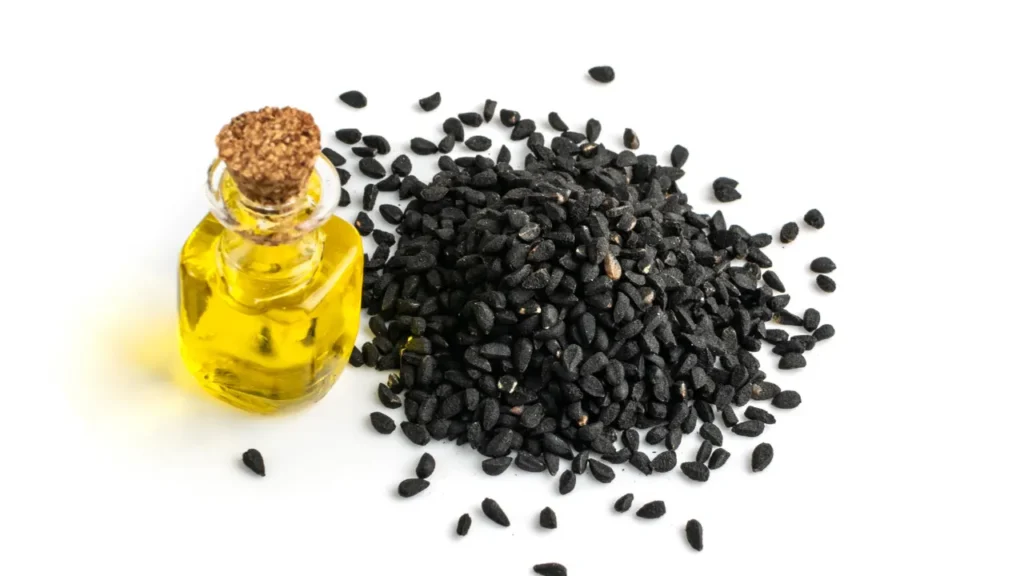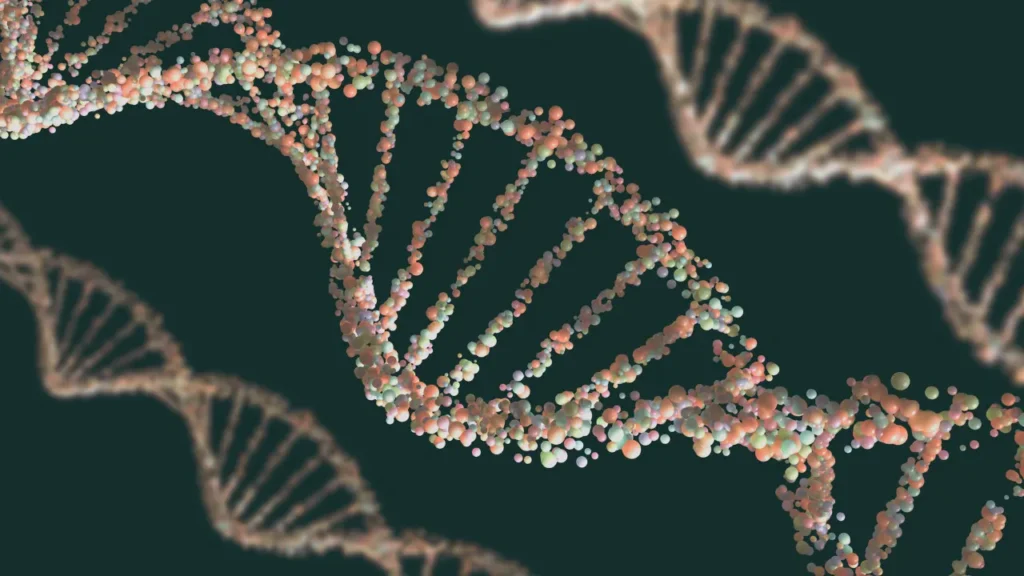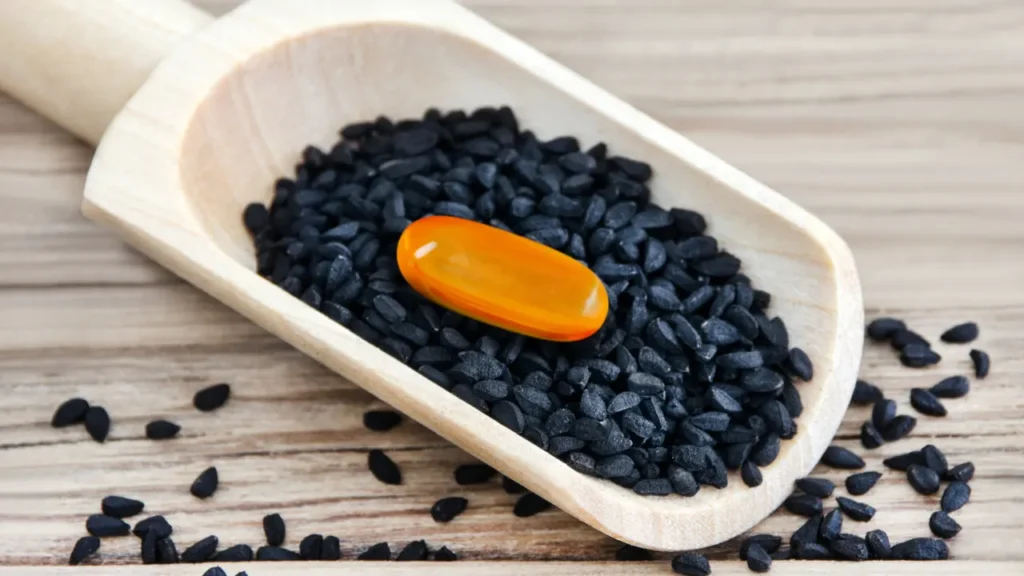Black seed is a flowering plant that is indigenous to the Mediterranean region and some parts of Asia. Its scientific name is Nigella sativa. Due to its many health benefits, it has been used for millennia in traditional medicine. Scientific research has just started to illuminate the pharmacological properties of Nigella sativa, highlighting its promise as a homeopathic treatment for a number of diseases. The therapeutic potential, ideal dosage, safety profile, and potential interactions of black seed as a dietary supplement are all thoroughly reviewed in this article.
You May Also Like:
The Best Supplements for Memory and Brain Fog: 5 Top Brands Reviewed
Finding the Best Supplements for Brain Fog After COVID: 5 Top Brands Reviewed
Black Seed: Benefits, Dosage, Side Effects, Drug Interactions, and Other Important Information is an original (NootropicsPlanet) article.
Nature of Black Seed
The annual flowering plant known as black seed, or Nigella sativa, is a member of the Ranunculaceae family. It is indigenous to regions of the Middle East, South Asia, and the Mediterranean region. The plant’s delicate, light blue to white blossoms and angular, jet-black seeds, which are the main source of its healing properties, are what make it unique. The seeds are a well-liked culinary element in many regional cuisines and an effective natural cure in traditional medicine because of their distinctive perfume and somewhat bitter flavor.
Health Benefits of Black Seed
- antioxidant and anti-inflammatory properties: In numerous in vitro and in vivo investigations, the main bioactive component of black seed, thymoquinone, has shown strong antioxidant and anti-inflammatory benefits. These characteristics may help explain why Nigella sativa is protective against inflammatory diseases like cancer, cardiovascular problems, neurological illnesses, and diseases caused by oxidative stress that cause tissue damage.
- Black seed oil has shown broad-spectrum antibacterial action against a number of bacterial, fungal, and viral diseases. The synergistic activity of its bioactive components, particularly thymoquinone, thymohydroquinone, and thymol, has been attributed to its antibacterial capabilities. Black seed oil may be used as an adjuvant therapy or a natural substitute for treating infections that are resistant to antibiotics.
- The bioactive components in black seed, particularly thymoquinone, have been proven to have anti-cancer properties by inducing apoptosis, reducing cell proliferation, and limiting tumor angiogenesis, according to studies. The effectiveness of thymoquinone against many cancer types, including breast, colon, lung, and prostate cancer, has been shown in both in vitro and animal trials. However, additional clinical studies are necessary to confirm its effectiveness and safety as a complementary or alternative cancer treatment.
- Advantages for the heart: Nigella sativa has been demonstrated to enhance heart health by altering lipid profiles, lowering blood pressure, and enhancing endothelial function. Its anti-inflammatory and antioxidant qualities could potentially play a role in its cardioprotective effects.
- Anti-diabetic effects: In both animal and human trials, black seed has been shown to improve glycemic control. Possible mechanisms include insulin secretion modification, insulin sensitivity improvement, and carbohydrate absorption suppression.
- Neuroprotective qualities: The neuroprotective potential of thymoquinone may be influenced by its antioxidant and anti-inflammatory properties. Studies on animal models of neurodegenerative disorders, including Alzheimer’s and Parkinson’s disease, have indicated that black seed may delay cognitive decline and enhance memory and learning. However, more investigation is required to confirm its effectiveness in human subjects.

Chemistry of Black Seed
The most well-known bioactive ingredient found in Nigella sativa seeds is thymoquinone (TQ), an effective anti-inflammatory and antioxidant. Thymohydroquinone, dithymoquinone, thymol, nigellone, and numerous important fatty acids, such as linoleic acid and oleic acid, are further significant components. The many health advantages attributed to black seed are the result of these chemicals’ synergistic interactions.
Physiological Mechanisms of Action
Black seed’s special combination of bioactive chemicals, which have a variety of physiological effects on the body and brain, is responsible for its wide range of health advantages. The following are the main ways that black seed and its components work:
- Antioxidant and anti-inflammatory mechanisms: The main bioactive ingredient in black seed, thymoquinone, is a strong antioxidant that may scavenge free radicals, lowering oxidative stress and minimizing cellular damage. Thymoquinone also prevents the production of inflammatory mediators such prostaglandins, leukotrienes, and cytokines by inhibiting the activity of crucial enzymes and transcription factors like cyclooxygenase-2 (COX-2) and nuclear factor-kappa B (NF-B), which are implicated in the inflammatory response.
- Antibacterial mechanisms: Thymoquinone, thymohydroquinone, and thymol, in particular, work synergistically to give black seed oil its antibacterial properties. These substances compromise the structural integrity of microbial cell membranes, obstruct vital cellular functions like protein synthesis and DNA replication, and suppress the activity of vital enzymes involved in microbial metabolism and pathogenicity.
- Anti-cancer mechanisms: It has been demonstrated that thymoquinone inhibits the growth, survival, and metastasis of cancer cells by concentrating on several signaling pathways. Important mechanisms include the induction of apoptosis through the activation of caspases and the release of cytochrome c from mitochondria, the suppression of angiogenesis by inhibiting the expression of vascular endothelial growth factor (VEGF) and matrix metalloproteinases (MMPs), and the reduction of cell migration and invasion by regulating the activity of various adhesion molecules and signaling proteins.
- Cardiovascular mechanisms: Studies have indicated that black seed can lower blood pressure, enhance endothelial function, and modulate lipid metabolism. By limiting the oxidation of low-density lipoprotein (LDL) cholesterol, obstructing the development of atherosclerotic plaques, and lowering vascular inflammation, thymoquinone’s antioxidant and anti-inflammatory activities may also contribute to its cardioprotective characteristics.
- Anti-diabetic mechanisms: Black seed may enhance insulin secretion by pancreatic cells, increase insulin sensitivity in peripheral tissues, inhibit glucose absorption in the intestine, and modulate crucial enzymes involved in glucose metabolism, such as glucokinase and glucose-6-phosphatase. These are just a few ways black seed may improve glycemic control.
- Neuroprotective mechanisms: Thymoquinone, an antioxidant and anti-inflammatory, is principally responsible for the neuroprotective effects of black seed. Thymoquinone may reduce neuronal damage by lowering oxidative stress and inflammation in the brain. It may also stimulate synaptic plasticity and enhance neurotransmission, which would enhance cognitive performance and slow the onset of neurodegenerative illnesses.

Optimal Dosage of Black Seed
Depending on the patient’s age, health situation, and the exact ailment being treated, the ideal black seed dosage may change. The following dose recommendations can be taken into account generally:
- Cold-pressed black seed oil or 1 teaspoon of black seed powder may be consumed daily for general health and wellness.
- For particular ailments: The dosage may change based on the seriousness and type of the illness. For instance, a daily intake of 2 gm of black seed powder for up to 12 weeks has been recommended in the case of type 2 diabetes. A daily dose of 100 to 200 milligrams of black seed oil or 0.5 to 2 gm of black seed powder has been suggested for hypertension.
It is significant to remember that these dosage recommendations may not be appropriate for everyone and are based on little clinical research. Before beginning any supplementation program, it is essential that you speak with a healthcare provider.
Side Effects of Black Seed
When ingested in moderation, black seed is generally regarded as harmless. However, some people may experience negative side effects like allergic reactions, skin irritability when applied topically, or gastrointestinal disturbances (like bloating, stomach pain, and nausea). Black seed oil may, in rare instances, lead to hypotension, which can be problematic for people with low blood pressure or those using blood pressure-lowering drugs.

Potential Substance Interactions with Black Seed
Black seed may interact with some drugs and substances therefore some populations should use caution:
- Anticoagulants and antiplatelet drugs: When combined with anticoagulants or antiplatelet medications like warfarin, aspirin, or clopidogrel, black seed may increase the risk of bleeding due to its potential blood-thinning properties.
- Blood pressure-lowering drugs: Black seed may intensify the effects of blood pressure-lowering drugs, resulting in hypotension or lightheadedness.
- Diabetes drugs: Due to black seed’s ability to alter blood glucose levels, it may intensify the effects of diabetic drugs, leading to hypoglycemia. When combining black seed with diabetes medications, close blood glucose monitoring is advised.
- Substrates for cytochrome P450: Thymoquinone, one of the components of black seed, may block specific cytochrome P450 enzymes involved in drug metabolism. This could have an impact on the pharmacokinetics and clearance of drugs that are substrates for these enzymes, possibly resulting in higher drug concentrations and negative effects.
Best Responsible Uses of Black Seed as a Nutritional Supplement
The following best practices are advised in order to maximize the potential health advantages of black seed and reduce the risk of adverse reactions and interactions:
- To reduce the danger of stomach upsets or other side effects, start with a low dosage and gradually increase it to the recommended levels.
- Before beginning any black seed supplementation, speak with a medical professional, especially if you have any pre-existing conditions, are pregnant or nursing, or are taking any prescription medicine.
- To assure the highest efficacy and purity, use a high-quality black seed product, such as organic black seed powder or cold-pressed black seed oil.
- To maximize the therapeutic effects of black seed supplementation and foster general well-being, combine it with a balanced diet and a healthy lifestyle.
Black Seed:
Conclusion
Black seed shows promise for various health benefits, but more research is needed to confirm its efficacy and establish definitive health claims. When considering the use of black seed supplements, it is important to adhere to recommended dosages, be aware of potential side effects, and consult with a healthcare professional, especially if taking other medications.

References:
- Black seed oil: A potential natural remedy against multidrug-resistant bacteria. Retrieved from: https://www.frontiersin.org/articles/10.3389/fmicb.2019.02514/full
- The Role of Nigella sativa and Its Active Constituents in Learning and Memory link:https://www.hindawi.com/journals/ecam/2016/6075679/?utm_source=google&utm_medium=cpc&utm_campaign=HDW_MRKT_GBL_SUB_ADWO_PAI_DYNA_JOUR_X_PJ&gclid=Cj0KCQjwr82iBhCuARIsAO0EAZzDtrX75QDhqPPzhF8SqH7V0Yk8xtk6wmjZyqqMwszPFrKA5GdYyhkaAuP5EALw_wcB
- Review on Clinical Trials of Black Seed (Nigella sativa ) and Its Active Constituent, Thymoquinone link:https://www.ncbi.nlm.nih.gov/pmc/articles/PMC5633670/
Important Note: The information contained in this article is for general informational purposes only, and should not be construed as health or medical advice, nor is it intended to diagnose, prevent, treat, or cure any disease or health condition. Before embarking on any diet, fitness regimen, or program of nutritional supplementation, it is advisable to consult your healthcare professional in order to determine its safety and probable efficacy in terms of your individual state of health.
Regarding Nutritional Supplements Or Other Non-Prescription Health Products: If any nutritional supplements or other non-prescription health products are mentioned in the foregoing article, any claims or statements made about them have not been evaluated by the U.S. Food and Drug Administration, and such nutritional supplements or other health products are not intended to diagnose, treat, cure, or prevent any disease.


